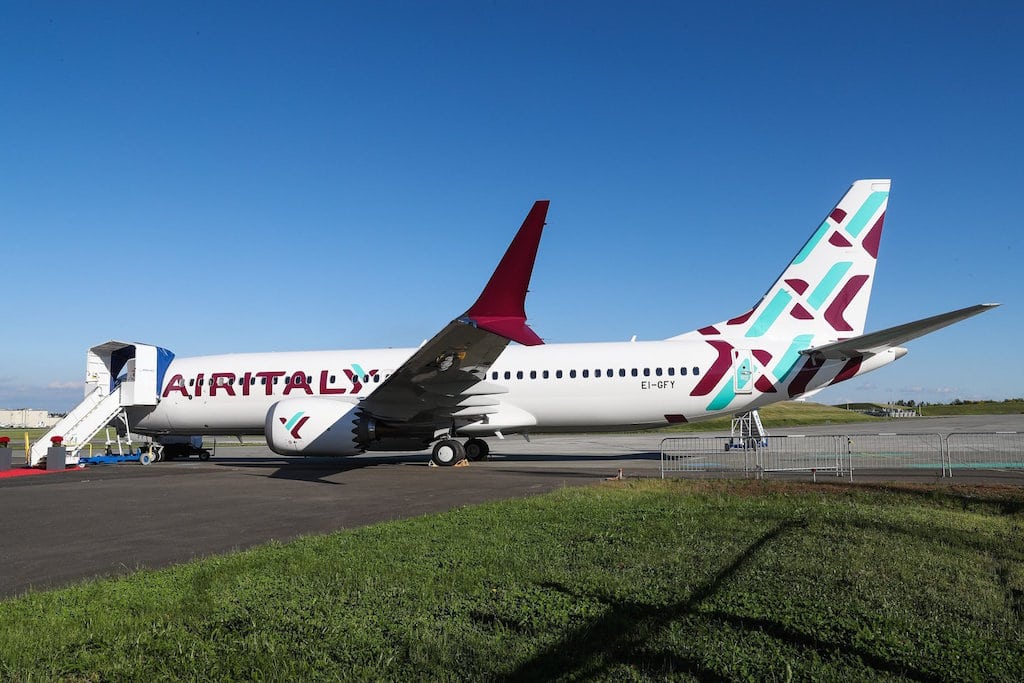Newly Named Air Italy Is Ready to Take On Troubled Alitalia

Skift Take
What's in a name?
This is a question investors in a small and otherwise unremarkable Italian airline seek to learn. The investors, including Qatar Airways, which in 2017 acquired 49 percent of the company, have taken Meridiana, a regional and leisure-oriented airline founded in the mid-1960s, and changed its name to Air Italy. The hope is that it can challenge Alitalia, the actual national carrier, for dominance.
"The role of being the reference carrier and the national icon is something we're aiming for," Andrea Andomo, Air Italy's chief commercial officer, said in an interview.
Given Alitalia's storied history, it would seem a folly for Air Italy to go for the title of Italy's go-to global airline, especially since as recently as a year ago, it was a mostly unknown carrier flying a slew of short-haul routes. But Alitalia is facing fiscal crisis, and while it has been in dire position before, this time is almost certainly worse. Perhaps it will survive, but its brand has taken such a hit it might never regain what it once had.
"There is a certain irony that Air Italy aims to replace Alitalia as the national airline, but with the backing of the national airline of another country," CAPA Center for Aviation wrote in a recent report.
But that's how it might happen, because Air Italy, with its fresh cash infusion, is on the move. This year, the airline has gone through a major rebranding, giving its planes snazzy paint schemes and outfitting flight crews in sleek new uniforms. With help from its new financial backer, which has more jets than it needs, Air Italy is also revamping its route network, placing more emphasis on flying long-haul routes using Qatar's castoff widebody jets with flatbed seats in business class.
"What we are aiming at is to become the No.1 Italian quality in terms of quality," Andomo said.
From its hublet in Milan, a city mostly neglected by Alitalia, Air Italy this year has begun flying to New York and Miami, with Bangkok and Delhi, Mumbai coming later in 2018. Passengers going to and from those places can connect to flights to many destinations in Italy and elsewhere in Europe.
Air Italy, however, remains tiny. It has 14 jets, with nine Boeing 737s, two Airbus A330s and three Boeing 767s, though the 767s will be retired soon, in favor of more A330s.
Growth is coming. The airline took delivery of its first Boeing 737 Max jet recently, and it will add 19 more over the next three years. It is also waiting for its first Boeing 787 deliveries, planned for next year. By 2022, the airline is expecting to have roughly 50 short- and long-haul jets.
Even as it grows, Air Italy won't often compete directly with Alitalia, which has its main hub in Rome, but it's highly unlikely the country can support two thriving global airlines. Air Italy's investors are betting they'll win, if and when Alitalia recedes.
"We are not trying to put anybody out of business," Andomo said. "It's just a matter of the market driving the winners in the long term. Currently we're exploiting a big opportunity that was already there."
Fulfilling this scale of global ambition would be tough for an airline to achieve in a short period, and it might be even harder if fuel prices continue to rise, or if other competitors, like Lufthansa Group or International Airlines Group, decide they want to thwart Air Italy's ambitions. Today's Milan-based business travelers are often connecting in another country when they want to travel abroad, using airlines like Lufthansa and British Airways.
But it would be almost impossible for the airline to thrive worldwide with a name like Meridiana. Hence the name change, the second one in the airline's history. From 1963 to 1991, it was called, Alisarda, and the airline's majority shareholder still uses that name.
"To sell the Meridiana brand, it's not that easy," Andomo said. "You need to explain, it's an airline. You need to explain it's actually flying to Italy. And then you can start really talking about the product. Now, I can go out and say, we're 'Air Italy.' You know we're an airline, that we're in Italy, and then we can tell you more."




